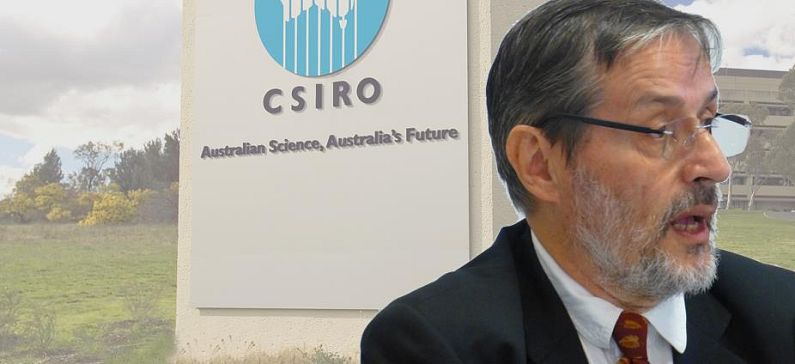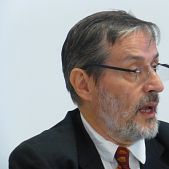
Internationally renowned radio astronomer
Dr. Tasso Tzioumis is an internationally renowned radio astronomer, researcher at the CSIRO’s department of Australia Telescope National Facility and the Australian Government representative at the International Telecommunication Union in Geneva.
He is the initiator and organizer of the important International Radio Astronomy Conference entitled “The Labyrinth of the Unexpected: unforeseen treasures in impossible regions of phase space”, held in the picturesque Kerastari, Greece. Every five years, in the village of Kerastari in the ancient region of Arcadia in Greece, experts in radio astronomy from all around the world meet to discuss their latest scientific discoveries and astronomical techniques.
Radio astronomy deals with the study of electromagnetic radiation, emitted from celestial objects at radio frequencies. The sources of radio emission include stars and galaxies, the sun and interstellar matter, and can be detected through radio receivers. It can be used in many ways. Radio astronomy will perhaps one day answer the question of whether there is life in other galaxies. Even the wi-fi, which is an Australian patent, was accidentally discovered by a CSIRO researcher through radio astronomy, where Dr. Tzioumis holds a managerial position.
In 2017, the Hellenic Physical Society (E.E.F.), honored him for his important work, which promotes physics, with the “ARISTOTELIS” award, the highest distinction awarded by the E.E.F. to scientists.
He was born and raised as a shepherd in the village, Kerastari. In 1970, after finishing school in Tripoli, he immigrated to Australia because of poverty and non-existent opportunities. He was the first of six children of a poor rural family. So, from the pastures of his village, where he helped his father, he found himself on the chaotic paths of the universe.
“It all started by accident. While travelling around the world and attending conferences, I often used to tell my colleagues about my village, Kerastari. When in 2002 we started discussing organizing our first international congress, I suggested we host it in my village. They accepted the idea wholeheartedly,” Dr Tzioumis tells Neos Kosmos. So successful was the conference, and so mesmerized were the attendees with Kerastari, that two more conferences – in 2007 and 2012 – followed.
“The choice of radio astronomy was random,” he says. “In the village, I used to help my father with sheep flocks. Often I used to take the flock and pasture them. At the age of 18, I migrated to Sydney. I worked for two years, made money, and learned the language. I was accepted at the University of Sydney with scholarship, and studied Physics, Maths and Electrical Engineering.” After working as an assistant professor, and completing his doctorate, it took Mr Tzioumis another five years for a master’s degree in astronomy. “I have three degrees and I confess that the Australian government helped me to achieve this,” he says today.
But he doesn’t forget Greece and his village. He renovated his family house in Kerastari, voted at the Greek elections in 2012, while his son served in the Greek army. “I do not cut ties with my village. Here are my father’s property and home”, he says.
He works with Greek colleagues and says he is willing to help Greece in any way he can in the field of science.








